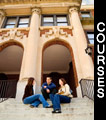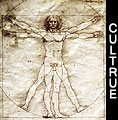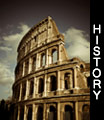.
.
.
Introduction
Isidoro Falchi was an amateur archaeologist, discoverer of the Etruscan city of Vetulonia. Like his German 'colleague' Schliemann who dedicated his life to discovering Troy, Isidoro Falchi (1838-1914) showed an uncommon determination to discover Vetulonia.
Just like Schliemann with Troy, Falchi was convinced of the existence and the location of Vetulonia and spared no efforts in discovering the site of the twelfth, then only missing Etrurian city. However, unlike Schliemann, Falchi did not have to prove the very existence of Vetulonia, as the existence of the city was well documented; only its location had not been found.
Falchi was a physician and self-taught amateur archaeoligst at a time when archaeology was almost exclusively in the hands of elites and aristocracy. As a result, autodidacts were not always taken seriously among scholars even if de facto, many important findings were the result of amateur work.
Childhood and Education
Isidoro Falchi was born in 1838 the last but one of a family of seventeen children from Montopoli in Val d'Arno (Pisa). He studied medicine at the university of Pisa and obtained his doctorate in 1859.
Personal life
He married two times, first with Antonia Gianni who died in childbirth in 1869. A couple of years later he married the widow of his brother. He got two children, a daugther from his first marriage and a son with his second wife. His son would work together with him in the excavations of Vetulonia.
Political and Occupational Career
While he was still a student, Falchi joined the movement against the government of Lorraine. At that time the duchy of Tuscany was under Lorraine rule, one of the most important one of the most important ruling houses in the history of Europe. When in 1859 a second war between Piedmont and Austria became imminent, Falchi enrolled in the tuscan contingent that took part in the campaign against Austria. They aimed at the expulsion of the house of Lorraine and the unity of Italy under Victor Emmanuel. In 1860 he followed the troops of volunteers of V. Malenchini to Palermo were they joined the Expedition of the Thousand (Spedizione dei Mille), a military campaign led by the revolutionary general Giuseppe Garibaldi, who defeated the Kingdom of the Two Sicilies, leading to its dissolution and annexation by the Kingdom of Sardinia, an important step in the creation of a newly unified Kingdom of Italy. In Caltanissetta was meant to work as an auxiliary physician, but returned to Tuscany at the end of the same year when he got ill.
From 1862 to 1871 he worked as a physician in the commune of Campiglia Marittima. At some point he returned back to his city of birth and lived there until his death.
Sidelines
While his numberous political commitments show his great sense of patriotism, Isidoro Falchi was also a very professional-minded person with a great sense of duty. Besides his full-time job as a medical doctor he also fulfilled numerous other activities and honorary positions. He was a secretary of the local savings bank, school inspector, member of the local society di mutuo soccorso ( a workers' welfare association), and town councelor. He was also mayor of his hometown Montopoli from 1873 to 1874.
Archealogical findings
It was in the 1870s, in the course of work for the municipality, that his interest in archaelogy was awakened. His work at the municipality gave him access to the commune's archives, where he discovered notes of local archealogical findings.
Falchi had set himself the goal of discovering the Etruscan city of Vetulonia. Etruria was not an empire, nor a city, but a league of twelve cities. Of the twelve Etruscan cities known to have existed only eleven of had been at the time of Isidoro Falchi. Only Vetulonia, the twelfth Etruscan city, still had to be discovered. The existence of this important Estruscan center had been ascertained by several writings, but its exact location had never been found. Several authors such as the Greek historian Dionysius of Halicarnassus, Pliny the elder and Ptolemy cite this important Etruscan center. Silius Italicus even attributed the Roman triumphal symbols of power to Vetulonia. Today the city of Vetulonia is located at about 15 km from the seaside, but at the time of the Etruscans it was an important seaport, located on a lagoon, which the Romans called Lacus Prilis. This explains why the symbol of Vetulonia is a man holding an oar.
Falchi discovered the ancient Etrurian town of Vetolunia in 1880, which up to 1887 bore the name of Colonnata and Colonna di Buriano. While the majority of his excavations and research concerned Vetolunia, Falchi also discovered one of the main necropolis in Italy in Populonia, quite by chance, while on a visit to the gulf of Baratti, on the Tuscan Tyrhenian coast. After obtaining permission from the owner of the land where he had found the tomb, Falchi started excavations in the month of November 1897, extending the area around the first discovery and bringing to light a large number of other tombs, all situated within a close perimeter, most of them covered with iron slag, as if the slag from the furnaces seemed to have been dumped there. The presence of iron slag made Falchi quite certain to have discovered the place where the ancient people of Populonia once had their furnaces. The Etruscan smelting process in 500BC was not as efficient as today's furnaces, so the slag itself is very high in iron. In fact, it was so rich it was later worked over by Mussolini as one of the main sources of iron in the first half of the 1900s. Some studies even suggest that heavy metal poisoning on human beings, plant and animal life in areas of Etruscan metallurgical activity may be have been co-responsible for or have contributed as an additional stimuluss together with policial and social change, to the abandonment of a number of these sites around the 6th century bc.
At a certain point and quite unexpectedly the landowner summoned Falchi to suspend excavations and refused to give him further permission to carry out any more excavations or even photograph or draw his various findings. This took place at a time when a heated debate concerning to the protection of national archaeological heritage was brewing in the higher cultural and political circles.
Legacy
A civic Museum Isidoro Falchi was opened in June, 2000. It is of considerable interest both for its collection of important historical-archaeological pieces from the 8th century B.C. and for its documentation of the various cultural facies of the town. This documentation completes and complements the excavations of the city and necropolis.
Civic Museum Isidoro Falchi
Piazza Vetluna, 1
Vetulonia (Comune di Castiglion della Pescaia)
Tel.: 0564 948058
References and further reading
Italia Estrusca. Guida Completa. Guide Giunte, 2000.
Adrian P. Harrison, Ilenia Cattani and Jean M. Turfa, Metallurgy, environmental pollution and the decline of Etruscan civilisation in Environmental Science and Pollution Research.
Delpino, F. FALCHI, Isidoro in Dizionario biografico degli italiani.













